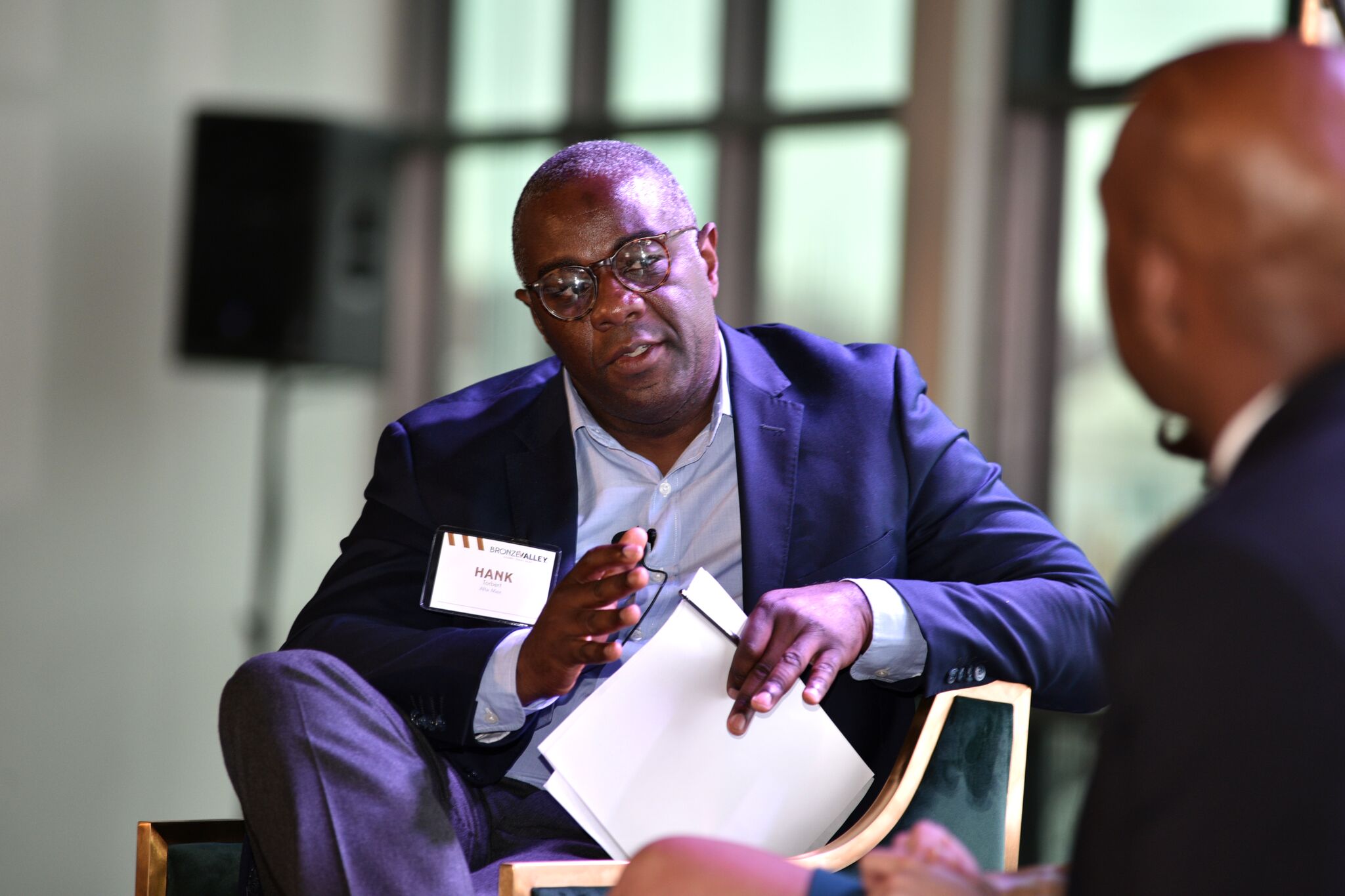VENTURE CAPITALISTS WEIGH IN AT BRONZE VALLEY
Hank Torbert
Funding. How can entrepreneurs set themselves up for success in networking, pitching and gaining investors? Hank Torbert of Alta Max LLC led a conversation with Miller Girvin of the Alabama Capital Network and Kwame Anku of Black Angel Tech Fund at Bronze Valley surrounding these questions.
How did you get started?
“I spent several years on Capitol Hill, then moved to a public affairs firm. I don’t have a finance or investment background. We have a group of founders that started Alabama Capital Network. They had been approached by colleagues who have seen this energy, entrepreneurship and momentum and wanted to support it. They asked me to be CEO, despite not having a finance background and really, I serve as a facilitator between the investor and the entrepreneurs. That was under one year ago and we are excited to be a part of all of this momentum,” said Girvin.
“My father was born in Ghana. As a young man, I saw my father who was from colonial Africa become a world-renowned cancer specialist, and you believe anything is possible. But for this to happen, you have to have ownership and be in a position of power. I always had that in my head,” said Anku. “Growing up, I was always thinking about how can I make things much better for people and how can I be a part of fundamental transformation.”
At a Stanford Black Alumni event in Atlanta, Anku and his fellow alumnae asked themselves, “How do we put our money to work to make change? That is how Black Angel Tech Fund was born, people wanting to make significant investment in black entrepreneurs so they can be sitting at the table with other titans, they have a voice and have influence,” said Anku.
Girvin and Anku shifted the conversation to how entrepreneurs can better approach investors and how investors are supporting entrepreneurs. Girvin began by reinforcing the value of mentorship and local investment to support entrepreneurs.
For Girvin’s Alabama Capital Network, which is a 35-member network of businesses and individuals, its mandate is “that we support Alabama businesses. Find those businesses who have customers and ask if they have a great plan for the fund they are raising. That is also on the investment side of things. Our members are very committed to being mentors. There are a lot of entrepreneurs in this state who need help walking through the next steps and avoiding the pitfalls of starting a business.”
Girvin was quick to emphasize the importance of local investors.
“If you don’t have local investors it’s hard to get people outside the state to take a chance on you. The community and economic development that goes along with them growing here in Alabama will hopefully keep them here and attract outside capital,” Girvin added.
Anku addressed how entrepreneurs can optimize their chances for investment:
“Having been an entrepreneur, I have a much better understanding of what people said when they were on the other side. Now I get it. I encourage entrepreneurs to be prepared to answer these five questions:
- What are the problems you are solving?
- How big of a problem actually is that?
- How do you uniquely solve that problem?
- How much money can we make partnering together to solve that problem?
- Why are you and your team best qualified to solve that problem?
In addition to the preparation, Anku reinforced the value of relationships and networking.
“It is more important to build relationships and leveraging that network to than it is for you to have this incredible pitch. Now I see that that is the easiest way to get the money and to get the support,” Anku added.
When it comes to access to capital, Girvin addressed the challenges of “the boys’ club” mentality in tech and startups.
“There is a lack of resources. People go to people who look like them, it is human nature. Minorities and underrepresented groups, there are fewer VC that are connecting with them. But I am encouraged that we are starting to break the stereotype that this is an ‘old boys’ club.’ I have five men who are my founders, who are very successful and who can reach across the world. They chose me as a woman to be their CEO, which is progress. The needle is moving, but the conversation needs to continue. Conferences like this help our progression,” added Girvin.
When looking at building a supportive ecosystem, Girvin weighed in on what investors in the community are looking for and how they can be better equipped to support entrepreneurs.
“There is a layer of investors that have risen through the ranks of a traditional company, have made lots of money and are reinvesting in the community. But because they are in traditional circles, they are more risk averse,” said Girvin.
“We have to educate the investor community on the best way to invest in startups. That is one layer. We also need entrepreneurs that are willing to put their money in other new business – that’s a huge win for the city of Birmingham,” she added.
Girvin finished the conversation with two main tips for entrepreneurs:
- Who is buying your product? You may have a great product and think you are solving a problem, which you probably are. But is anyone willing to pay you to solve that problem? If you have a great idea, identify who the customer is.
- Coachability. I love meeting with people. But if you aren’t willing to listen or to take advice it is very difficult for us to take that next step. Coachability is a very big part of that next step.
Learn more about the Alabama Capital Network at http://alabamacapitalnetwork.com/ and Black Angel Tech Fund at https://www.blackangeltechfund.com/.

